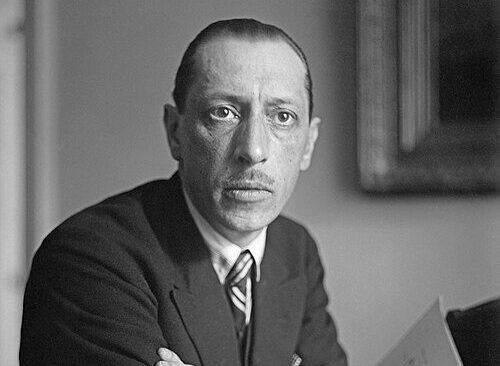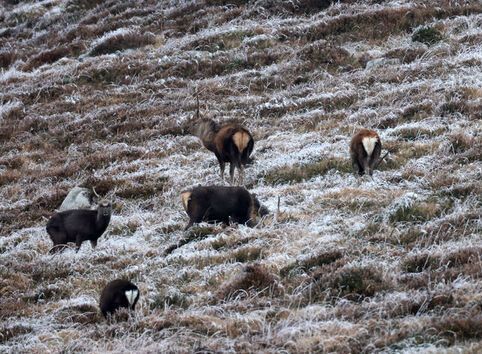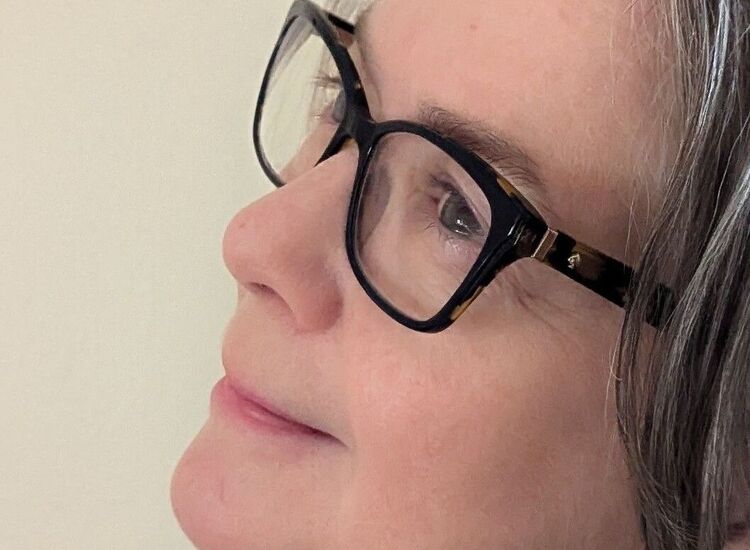Daniel James McCabe.
Page Turner / Edited by Peter McDermott
The just published “The Writing Irish of New York” is a collection of autobiographical essays, which among other things aims to provide a “vivid portrait of a community of authors who continue to fight for Ireland’s place at the top of the literary canon.”
Daniel James McCabe’s contribution to the volume, “The Poet’s Paradox,” shows that Social Security doesn’t have to be part of your short-term game plan for you to find your voice in the memoir genre.
He writes engagingly about his family background and a childhood that included writing an adventure novel in fourth grade at the back of the class and developing passions for the poetry of W.B. Yeats and cinema.
“I began my career in still photography and transitioned into cinema and theatre in 2012,” McCabe told the Echo. “My first stage play ‘The Flood’ premiered in the 2014 New York Fringe Festival where it won the Award for Excellence in Playwrighting.
Since then he has written three feature films, a TV series, a second full-length stage play and several short films and one-act plays while continuing to crew on productions such as Amy Sherman-Palladino's “The Marvelous Mrs. Maisel,” Cary Fukunaga's “Maniac” and the Safdie Brothers' “Uncut Gems.”
He and his wife, Australian actress Emma Ishta, have completed their most recent short film, “Shadow Puppet,” and it’s currently in consideration at film festivals in North America and around the globe.
“I have two dramatic writing projects on the front burners right now. My new stage play ‘Charlatan’ is an allegory for the post-truth era set in a Times Square fortune-telling parlor,” McCabe said. “It’s currently being developed at the Actors Studio, where I’ve had the privilege of being invited to participate in a long-term workshop.
“I’m also working on a new TV series called ‘Salt of the Earth,’ which follows three ethnically diverse New York families through 40 years of history, starting the year of the JFK assassination and concluding with the attacks of Sept. 11.”
As for the “The Writing Irish of New York,” he added: “The book features some of my heroes, and it’s an honor to have found myself in such fine company. Colin [Broderick] has done a great service in compiling our contemporary voices alongside recollections of the great New York Irish authors and playwrights of the past.”
Daniel James McCabe
Date of birth: Aug.10, 1979
Place of birth: Queens,
Spouse: Emma Ishta
Children: Daughter Tierney Rose (10 years old) and son Torin James (2, born on Bloomsday 2016)
Residence: Brooklyn

What is your writing routine? Are there ideal conditions?
At present, I’m writing from a tent I built in the bucket of a construction lift armed out 60 feet above Queens Boulevard, as Manhattan-bound traffic passes below me on its way to the 59th Street Bridge. I’m grateful for the tent, because I’ve been up here for three hours now, lighting a TV show for ABC, and it’s been snowing heavily all morning. I have learned to get my work done regardless of external conditions, but as a general rule I avoid the cliche of writing in coffee shops.
As a younger man I suffered from a common delusion that if one would write meaningfully, then his life must be a maelstrom. I have since disabused myself of such misconceptions and it has made for a much more productive existence, though I‘m grateful for the many lessons of those vivid and difficult years.
When I really get down to work on a piece I find it best to be a bit of a monk about it. I delete all social media from my life, I abstain from drinking and other forms of distraction. I go to bed early. I have a little studio about 20 minutes from our apartment and I try to be there by 7 a.m. each day. I always try to end each session while I’m ahead, when I still know where to go next in the story, so I’ll have somewhere to start the following morning. In pursuit of a dynamic inner life, I make every attempt to keep my outer life dull. I save the drama for the stage and the tumult for the page.
What advice do you have for aspiring writers?
Well, this is the advice I give myself. I’ve found that things go a lot better when I have the discipline to follow it:
Don’t talk so much. Again, save it for the page. Not only does going on about an idea dissipate the fire of it, but it also makes you look like a dilettante.
Everyone either believes that they’re doing the right thing or that they have reasons sufficient to justify doing the wrong thing, so make sure you side with your characters. All of them, especially the “bad” ones, or the ones you identify with the least. Just as an actor has to be on her own character’s side, so should a writer empathize with every voice in the narrative, lest the characters become caricatures and the story become a sermon.
Take long walks, especially if you live in New York. Walk the streets for hours at a time and listen and watch and turn inward and away and make notes even when you’re around people who might think you odd or rude or distant for doing it. You have your task, and they have theirs. Pay attention to old folks and the things they say and the ways they say them. Sketch the people around you freely, their mannerisms and motivations. Find the lint in the pockets of your characters, the sparkle in their singularity. Be honest about what you see, especially in the mirror. Challenge yourself constantly with perspectives other than your own.
Recognize your place in the continuum of human experience, the marriage of your moment to the eternal mind. You’re a part of the long march since we first crawled from the muck and began reaching toward enlightenment, and your artistry is not an exemption, but an opportunity to participate more meaningfully in the human story.
Most of all, never, ever, no matter how afraid you may become, ever buy into the notion of the human mind as a binary machine. You’re far more interesting than that, and so are most of the people you’ll meet, if only you give them the chance.
What book are you currently reading?
Pete Hamill’s “Irrational Ravings,” a collection of his journalism up to 1971, “The Selected Writings of Epictetus,” a 1st-century Stoic philosopher with a profound sense of duty and a wicked sense of humor, and “New York by Gaslight,” an 1850 book about the New York underbelly by New York Tribune journalist George G. Foster.
Is there a book you wish you had written?
“What poet would not grieve to see
His brother write as well as he?
But rather than they should excel,
Would wish his rivals all in hell.”
- Jonathan Swift
If you could meet one author, living or dead, who would it be?
Oh I don’t know. A steak with Fran Leibowitz? A pipe with Jack London? What would Shakespeare say about Brexit? Or Twain about Trumpism?
What book changed your life?
Conor McPherson’s “The Seafarer.” It’s a play of course, not a book, but It’s no exaggeration to say that I wrote my first play “The Flood” as a direct result, and that decision has changed my life immeasurably.
What is your favorite spot in Ireland?
I wrote my first screenplay in a little house on the River Dodder in Dublin. Fireplace, back garden, 20-minute walk to the city centre. And thanks to the trust of a woman called Clare Barry, for the first time in my life I had the solitude and support I needed to give myself to a substantial endeavor as a writer. Ever since, I’ve found I’m always happiest when I can recreate those conditions.
You're Irish if...
You never give up.








